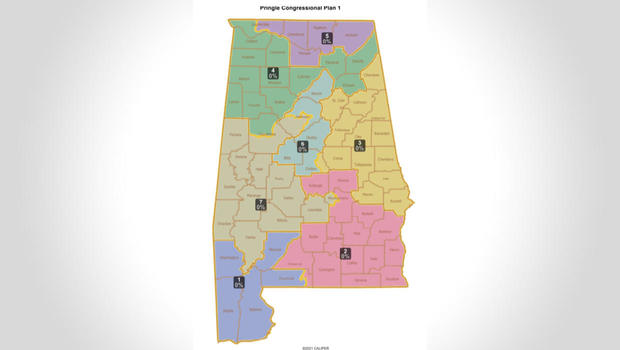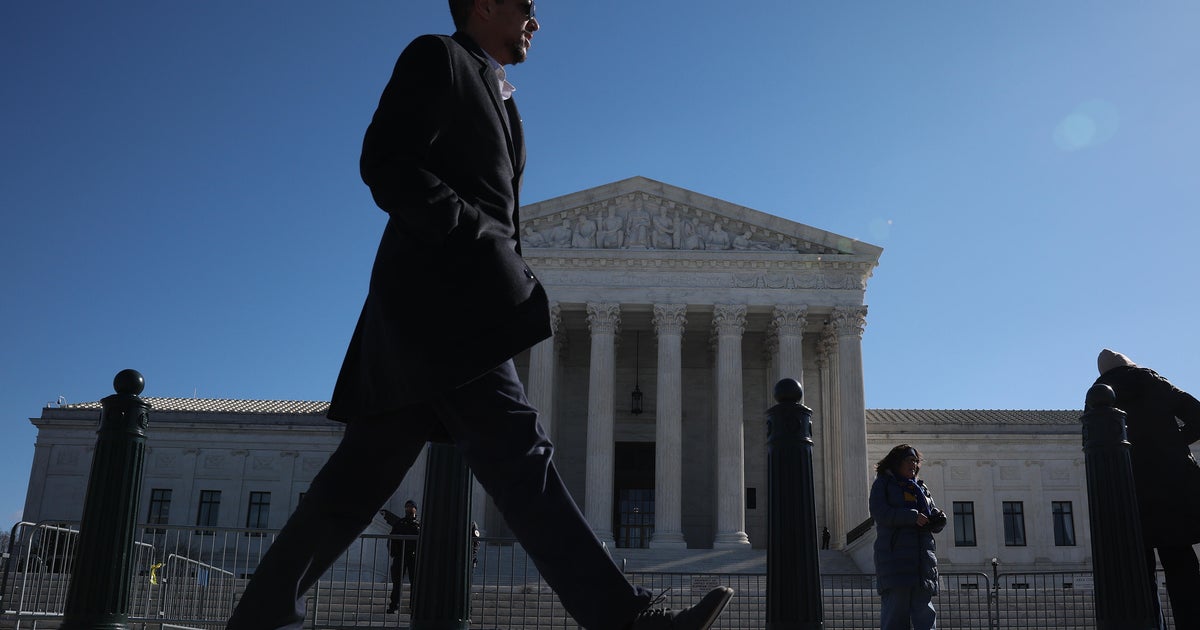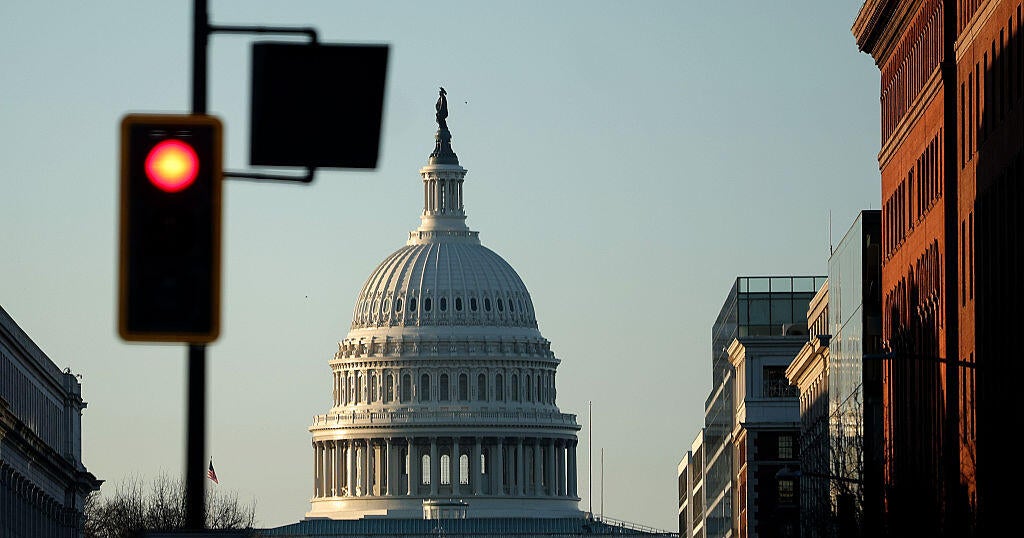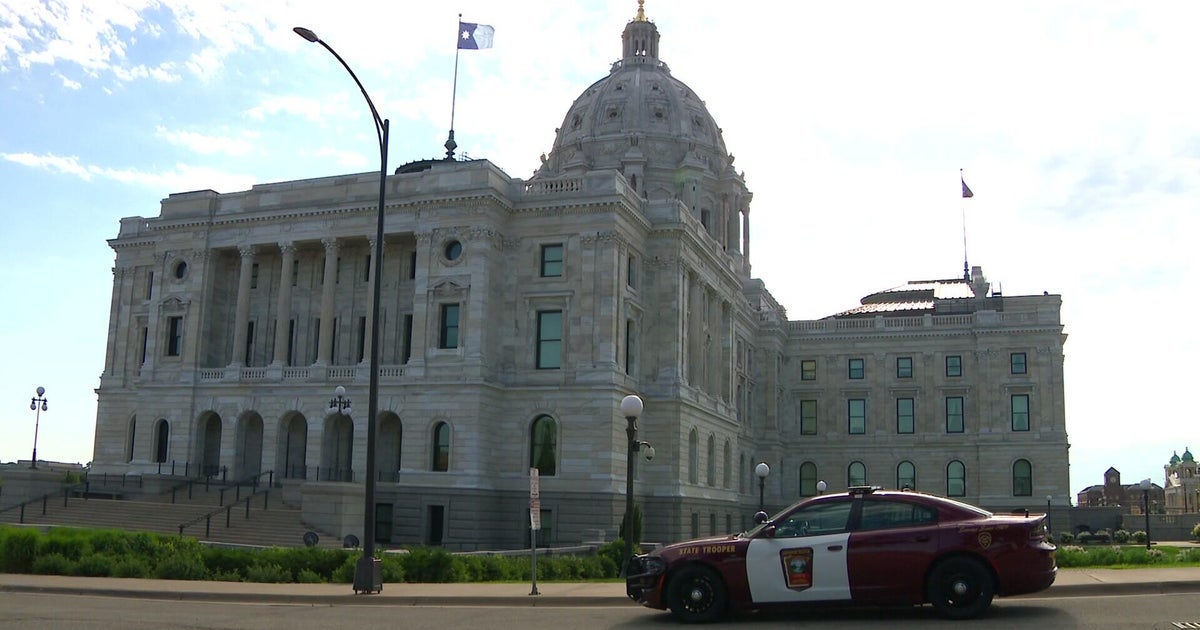Supreme Court rules against Alabama in high-stakes Voting Rights Act case
Washington — The Supreme Court on Thursday invalidated a congressional map drawn by state lawmakers in Alabama after the 2020 Census, finding the state's redistricting plan for its seven House seats likely violated a key provision of the Voting Rights Act.
In an opinion authored by Chief Justice John Roberts, the high court declined to accept far-reaching arguments from Republican officials in Alabama that would have made it more difficult to challenge congressional and state legislative maps that dilute the power of minority voters under Section 2 of the Voting Rights Act of 1965.
Justices Brett Kavanaugh, Sonia Sotomayor, Elena Kagan and Ketanji Brown Jackson joined Roberts in the majority, while Justices Clarence Thomas, Samuel Alito, Neil Gorsuch and Amy Coney Barrett dissented.
The ruling in favor of a group of Black voters who challenged the lawfulness of the congressional voting lines came as a surprise, given that the high court has chipped away at the Voting Rights Act in a string of decisions under Roberts, most notably in 2013.
But in its decision in the case known as Allen v. Milligan, the 5-4 court declined to further weaken the landmark law, and instead affirmed a lower court opinion that found it substantially likely that Alabama's map violated Section 2. The lower court ordered Alabama state lawmakers to redraw its congressional map to include a second district that gave Black voters equal opportunity to elect their favored candidate, as required by the Voting Rights Act.
"We find Alabama's new approach to [Section 2] compelling neither in theory nor in practice," Roberts wrote. "We accordingly decline to recast our [Section 2] case law as Alabama requests."
The chief justice acknowledged the "concern that [the statute] may impermissibly elevate race in the allocation of political power within the states," and said the Supreme Court's ruling "does not diminish or disregard these concerns."
"It simply holds that a faithful application of our precedents and a fair reading of the record before us do not bear them out," Roberts concluded.
In his dissent, Thomas said the majority decision "fossilize[s] all of the worst aspects of our long-deplorable vote-dilution jurisprudence."
"It goes out of its way to reaffirm [Section 2's] applicability to single-member districting plans both as a purported original matter and on highly exaggerated stare decisis grounds," he said. "It virtually ignores Alabama's primary argument—that, whatever the benchmark is, it must be race neutral — choosing, instead, to quixotically joust with an imaginary adversary."
Attorney General Merrick Garland praised the Supreme Court's decision and reiterated the Biden administration's commitment to protecting voting rights.
"Today's decision rejects efforts to further erode fundamental voting rights protections, and preserves the principle that in the United States, all eligible voters must be able to exercise their constitutional right to vote free from discrimination based on their race," he said in a statement. "The right to vote is the cornerstone of our democracy, the right from which all other rights ultimately flow."
Alabama Secretary of State Wes Allen said he is "disappointed" in the opinion.
The fight over Alabama's congressional map
The dispute arrived at the Supreme Court after the 2020 redistricting cycle, which led the state's GOP-controlled legislature to enact new lines for Alabama's seven congressional districts. Under the original map, there was one district — the 7th —with a majority of Black voters, which state Republicans said was consistent with each of Alabama's congressional redistricting plans since 1992.
But a group of Black voters and voting rights groups challenged the boundaries under Section 2 of the Voting Rights Act, which prohibits any voting procedure that abridges or denies the right to vote "on account of race." Under the law, a violation of Section 2 occurs when, "based on the totality of circumstances," members of a protected class "have less opportunity than other members of the electorate to participate in the political process and to elect representatives of their choice."
The challengers argued the redistricting plan diluted the power of Black voters by preventing them from electing their preferred candidates in all but one congressional district.
A unanimous federal district court panel of three judges found it substantially likely that the map violated Section 2 and blocked Alabama from using the redistricting plan during the 2022 midterm elections.
But Alabama GOP officials sought emergency relief from the Supreme Court, and the high court voted 5-4 in February 2022 to put the district court's decision on hold and take up the dispute. Roberts joined the three liberal members of the court in dissent.
The November midterm elections were held under the original map, and the state's delegation has one Democrat, Rep. Terri Sewell. Black Alabamians make up 27% of the state's voting age population.
A surprise decision
The dispute was closely watched by voting rights experts, who feared that the Supreme Court's 6-3 conservative majority would limit the ability of voters to challenge voting lines under Section 2 and pave the way for more racial gerrymandering of legislative maps.
The high court has weakened the Voting Rights Act in recent years, first in 2013 and then in 2021.
In the 2013 ruling in Shelby County v. Holder, the Supreme Court effectively dismantled Section 5 of the law, which required jurisdictions with a history of race-based voter discrimination to receive federal approval of changes to their voting rules.
In the 2021 decision, Brnovich v. Democratic National Committee, the Supreme Court upheld two voting rules from Arizona and said they did not violate Section 2. Justice Elena Kagan, writing for the court's three liberal members, warned in dissent that the ruling "undermines Section 2 and the right it provides," and accused the majority of rewriting the provision.
Separately, in 2019, the Supreme Court said federal courts had no role to play in deciding disputes involving partisan gerrymandering, making the dispute out of Alabama crucial in determining the role the Voting Rights Act would play in racial gerrymandering claims.








